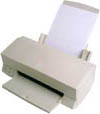The Noun Clause
Recognize a noun clause when you find one.
Any clause—main (or independent), subordinate (or dependent), adjective (or relative)—that functions as a noun is a noun clause.
Consider this sentence:
Our plates and cups are always tacky with residue because of Yolanda's inefficient method of washing dishes.
Method = noun.
If we replace method with a clause, we have a noun clause:
Our plates and cups are always tacky with residue because of how inefficiently Yolanda washes dishes.
How inefficiently Yolanda washes dishes = noun clause.
Know the functions that noun clauses serve.
Since a noun can function as a subject, subject complement, or object, a noun clause can do the same.
Read these examples:
You rock! is the affirmation Benjamin says to the mirror every morning before he leaves the house.
You rock! = subject.
Dad's favorite advice is "Do not sweat the small stuff."
Do not sweat the small stuff = subject complement.
During the family meeting, Harry presented what he discovered in Mona's incriminating diary.
What he discovered in Mona's incriminating diary = direct object.
Grandma always saves one turkey leg for whoever gave her the best Christmas present.
Whoever gave her the best Christmas present = indirect object.
For the long drive to Atlanta, Darren wants to ride with whoever has the best audio system.
Whoever has the best audio system = object of the preposition.
©1997 - 2025 by Robin
L. Simmons
All Rights Reserved.
